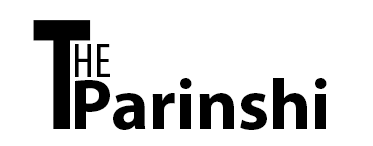Laravel and WordPress are both powerful tools, but they serve very different purposes and have different target users. The option best suited to you hinges on your unique necessities and criteria. Let’s assess the possibilities from several perspectives:
- Purpose:
- WordPress: Primarily a content management system (CMS) designed for creating and managing websites and blogs. It excels in content publishing and is user-friendly.
- Laravel: A PHP web application framework designed for building complex, custom web applications. Developers are supplied with a broad spectrum of tools and libraries through this platform.
- User-Friendliness:
- WordPress: Extremely user-friendly and suitable for users with minimal technical skills. Ideal for bloggers, small businesses, and individuals who want a simple website.
- Laravel: Geared towards developers and requires a good understanding of programming concepts. Not user-friendly for non-developers.
- Customization:
- WordPress: Highly customizable through themes and plugins. You can find thousands of free and premium themes and plugins to extend functionality.
- Laravel: Offers complete control over application structure and logic. Developers can create fully customized web applications.
- Scalability:
- WordPress: Can handle small to medium-sized websites effectively. With proper optimization and hosting, it can scale to larger sites, but it’s not ideal for complex, highly scalable applications.
- Laravel: Suitable for building scalable web applications, especially when combined with modern frontend frameworks. With Laravel, it’s a breeze to scale up your project thanks to its modular structure!
- Security:
- WordPress: Vulnerable to security issues, especially when not regularly updated and secured. Requires good security practices and plugins.
- Laravel: Offers strong security features by default. It has features like authentication, CSRF protection, and a dedicated security team.
- Community and Ecosystem:
- WordPress: Has a massive user and developer community, which means extensive support, plugins, and themes. Excellent for discovering resolutions to frequent issues.
- Laravel: Growing community with a focus on modern web development practices. Offers a variety of packages and libraries via Composer.
- Content Management:
- WordPress: Excellent for content management, including blogging, media handling, and SEO. Built-in WYSIWYG editor and user-friendly interface.
- Laravel: Requires custom development for content management features. Not built for content-heavy websites out of the box.
- Speed of Development:
- WordPress: Quick to set up and get started, especially for simple sites. Themes and plugins make development faster.
- Laravel: Requires more initial setup and development time, but it offers greater control and flexibility for complex applications.
In summary, if you need a simple website or blog and don’t have coding experience, WordPress is likely the better choice. However, if you require a highly customized web application with complex functionality and have development skills or resources, Laravel is the way to go. The “better” option depends on your project’s specific needs and your level of technical expertise.



